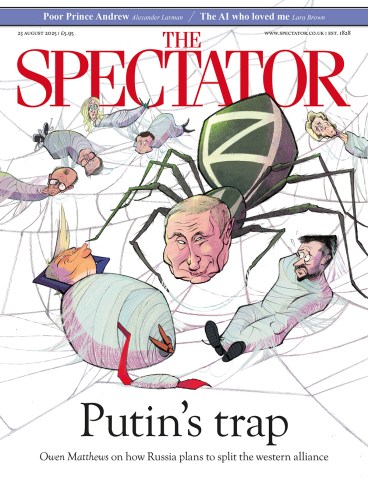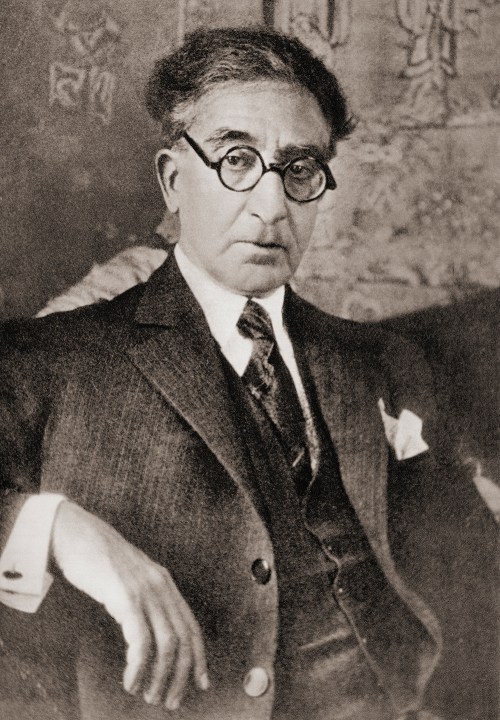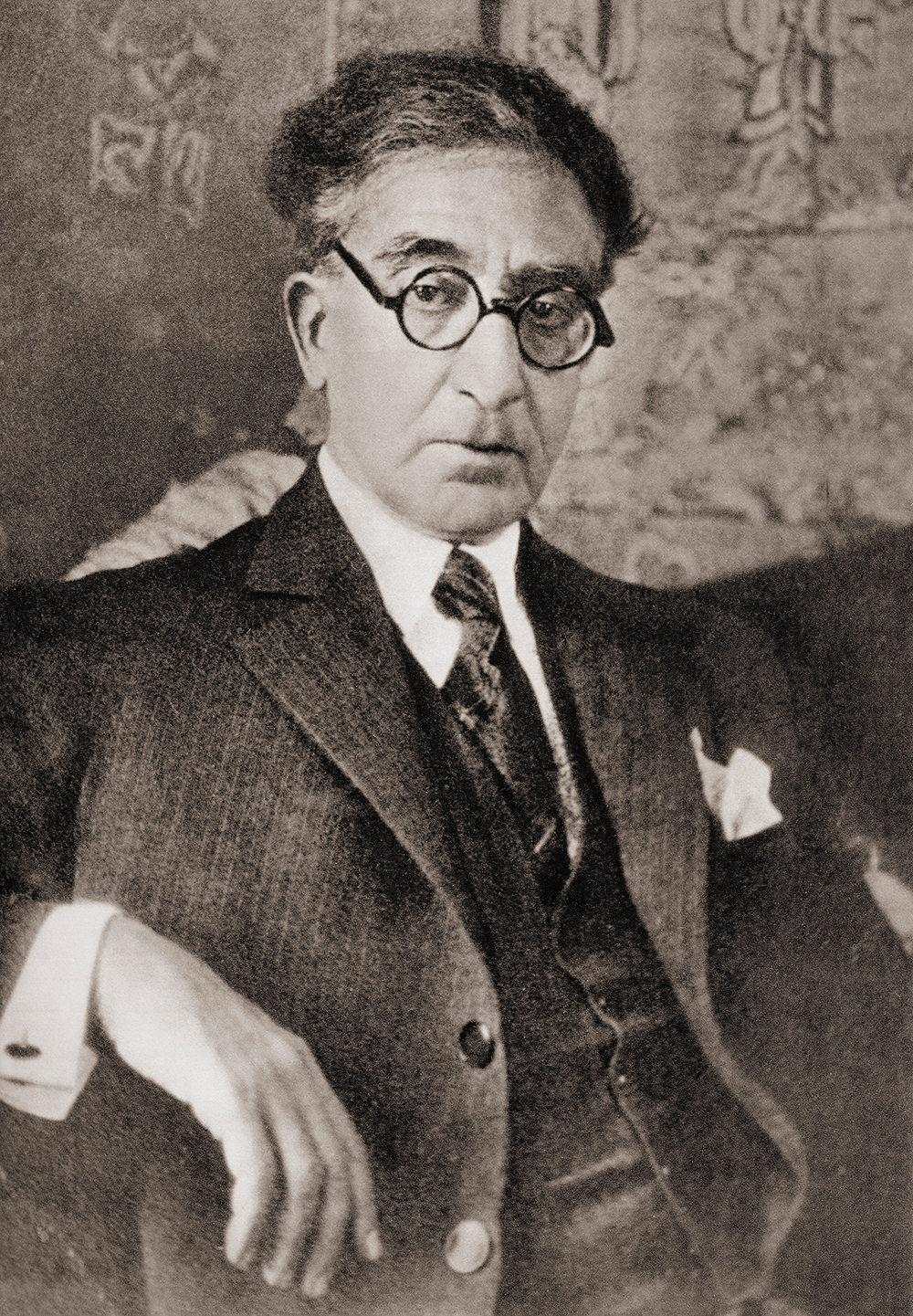
C.P. Cavafy, who had a very high opinion of his own work, would no doubt be gratified to learn that he is now one of the most admired poets of the 20th century. This is all the more remarkable because during his lifetime (1863-1933) he did not allow a single volume of his poetry to be published, preferring to circulate privately printed sheets and pamphlets among his admirers. He was also disinclined to co-operate with those who wanted to translate the poems from their original Greek into other languages; but in English alone there have now been more than 30 different volumes of his complete or selected poems. Even so, there has been no English language biography since Robert Liddell’s, published more than 50 years ago, which makes this new and extremely thorough account of the poet’s life, work and posthumous reputation especially welcome.
Cavafy was born into a prosperous Anglo-Greek family of merchants in Alexandria. But his pampered childhood came to an abrupt end at the age of seven when his father died young, leaving a widow, seven children and a severely depleted estate. He nevertheless enjoyed a cosmopolitan upbringing in Liverpool, London and Constantinople before he returned permanently to the city of his birth in his early twenties. Obliged to find employment, he became a clerk with the irrigation service, where he remained for 30 years. The job was dull but not particularly onerous, since his working hours were 8 a.m. to 1.30 p.m., leaving him the afternoon and evening to do his writing.
As a young man Cavafy had enjoyed exploring Alexandria, its streets and parks and bars and shops, wonderfully brought to life by Peter Jeffreys and Gregory Jusdanis; but in later years he spent much of his time secluded in his flat at 10 Lepsius Street, above a brothel in a down-at-heel area of the city.
It was to this flat that E.M. Forster came in 1916 while doing war service in Egypt with the Red Cross. Forster would be the first person to introduce Cavafy’s work to English readers. A perceptive and affectionate article, which included translations of three poems and extracts from two others, was published in the Athenaeum in April 1919 and reached a larger audience when it was reprinted in Pharos and Pharillon (1923) with the additional translation of what became one of Cavafy’s most celebrated poems, ‘The God Abandons Antony’.
Forster had no doubt been drawn to Cavafy because of their shared homosexuality. Although extremely circumspect in his personal life, Cavafy felt able to admit in a poem that ‘In the dissolute life of my youth/ The designs of my poetry took shape,/ the territories of my art took form’. He nevertheless complained that the ‘wretched laws of society have inhibited my expressiveness’, something Forster well understood, having recently completed his homosexual novel Maurice, which he felt unable to publish but which he circulated in manuscript among sympathetic friends. Society’s laws notwithstanding, Cavafy would go on to make homosexual encounters in what the authors call the ‘idealised anonymous realm’ of Alexandria, ‘where not even the young men have names’, a principal subject of his poems, which is one of the reasons his work feels so ahead of its time.
Cavafy spent much of his later years secluded in his flat above a brothel in a down-at-heel area of Alexandria
The other element of Cavafy’s poetry that made it modern was the seemingly casual but in fact meticulously crafted language he employed – a mixture of contemporary demotic Greek and the literary and archaised form katharevousa. This means the poems are tricky to translate, since Cavafy’s carefully deployed distinction between the two modes is difficult to render in other languages. When not writing about fleeting homosexual experiences, Cavafy drew upon his deep knowledge of history to create poems featuring otherwise forgotten people and events from the ancient world. The unifying theme of his poetry is the depredations of time: the decline and collapse of civilisations, the transience of physical beauty, the sensual pleasures of youth sorrowfully recalled in old age. Time itself sometimes collapses, as in ‘Caesarion’, where Antony and Cleopatra’s doomed eldest son, imagined as a beautiful youth, materialises in the penumbra of the poet’s candle-lit flat. There is also a literary and sexual continuity between the ancient and modern worlds in the way the young men Cavafy recalls from his own past have the physical attributes of classical Greek statuary but are otherwise absolutely contemporary, with unrewarding jobs, shabby suits and ‘mended underwear’.
Jeffreys and Jusdanis have chosen to arrange their biography thematically rather than chronologically, ‘focusing on key topics’, which include Alexandria, Cavafy’s family, his friendships, his poetry and the dissemination and promotion of his work. This has its problems, leading to occasional repetitions and to the delayed arrival of useful information. For example, we learn in an early chapter titled ‘Trauma, Exile and Loss’ that it was ‘the bombardment of Alexandria’ that forced the family to leave the city in 1882, but what that bombardment was and what caused it is not explained until more than 100 pages later in a chapter about the city’s history.
In addition, information that should have been integrated into the text is sometimes relegated to the endnotes, as in the account of the silences around Cavafy’s sexuality. The distinction between facts and speculation is occasionally blurred: an older sibling, Paul, is first described as one of the family’s two ‘homosexual brothers’, then as ‘reputedly homosexual’, an endnote adding ‘the source for this is based on innuendo and rumour propagated by Dimitris Garoufalias’, which hardly sounds authoritative. Perhaps excusably, poems are sometimes referred to but not quoted, which means that it is essential to have an edition of the poems to hand – ideally Daniel Mendelsohn’s superb translation of the Complete Poems, which includes unfinished and ‘repudiated’ works.
These caveats aside, this is a richly detailed and clear-sighted account of Cavafy’s life and work, not afraid to lay bare the poet’s occasionally brutal dismissal of those who considered themselves his friends (shades of Benjamin Britten) and his ‘ruthless self-promotion’. Above all, it sends one back to Cavafy’s extraordinary body of poems both enlightened and newly enthused.








Comments